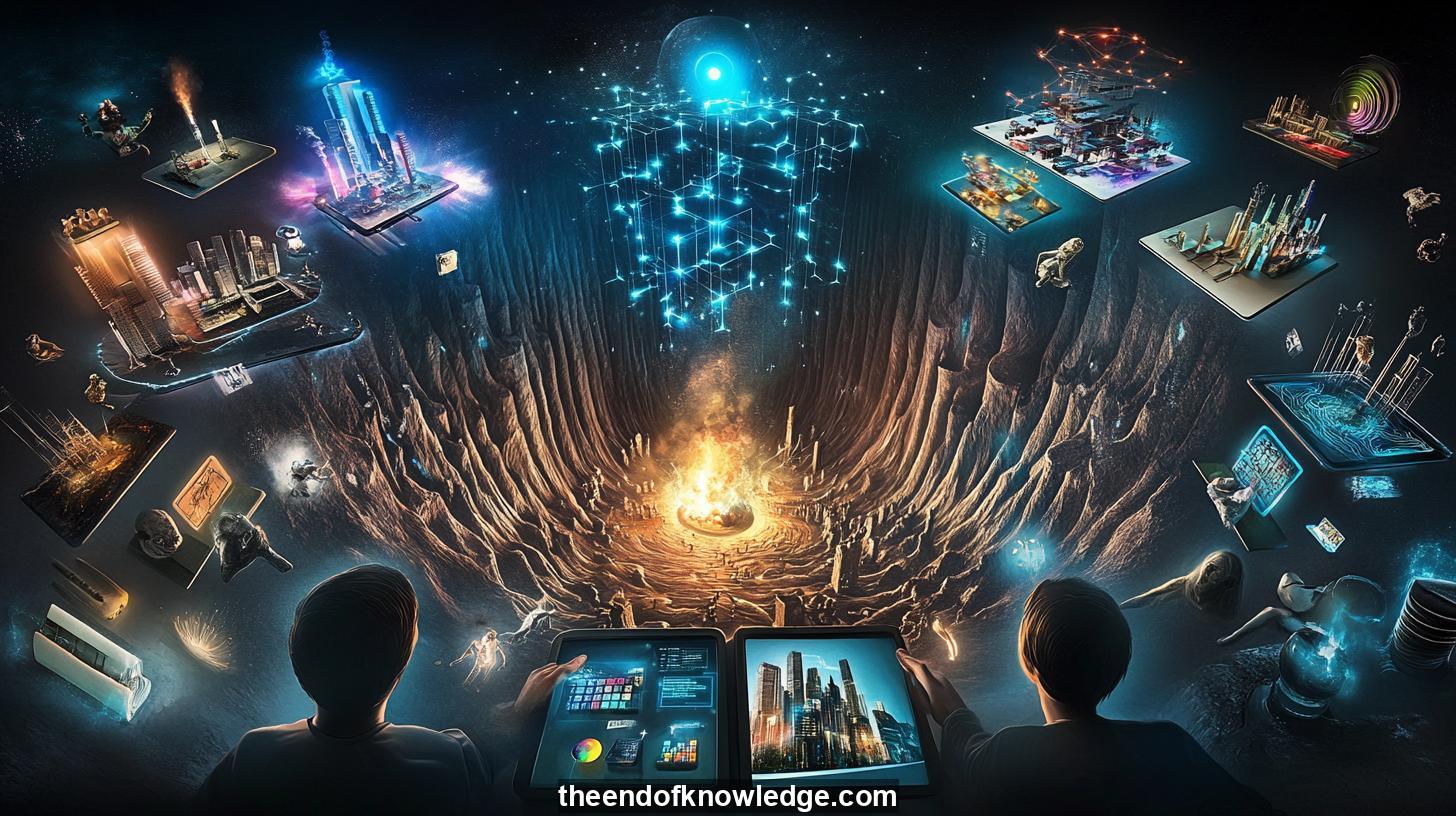 >
>
Concept Graph, Resume & KeyIdeas using DeepSeek R1 :
Resume:
explores the intersection of philosophy, technology, and artificial intelligence, focusing on the implications of GPT-4 and its potential to reshape human understanding. Drawing on Plato's Allegory of the Cave, the discussion delves into the distinction between representation and reality, arguing that human perception is filtered through layers of interpretation. Javier Munoz de la Cuesta posits that there are three levels of representation: direct experience, modeled reality, and a universal, abstract level. He emphasizes the limitations of language in capturing these levels and questions whether artificial intelligence can transcend human cognitive biases. also touches on the ethical implications of AI, suggesting it could either enhance human cognition or exacerbate distortions of reality, akin to Jean Baudrillard's concept of hyperreality. Ultimately, it calls for a philosophical reevaluation of technology's role in society, urging a balanced approach that avoids both utopian optimism and dystopian pessimism.30 Key Ideas:
1.- explores the intersection of philosophy and AI, particularly GPT-4's impact on human understanding.
2.- It references Plato's Allegory of the Cave to illustrate the distinction between representation and reality.
3.- Javier Munoz de la Cuesta argues that human perception is mediated by layers of interpretation.
4.- Three levels of representation are proposed: direct experience, modeled reality, and a universal, abstract level.
5.- The limitations of language in capturing these levels are highlighted as a significant challenge.
6.- The discussion questions whether AI can transcend human cognitive biases and limitations.
7.- Ethical implications of AI are explored, including its potential to enhance or distort human reality.
8.- The concept of hyperreality, inspired by Jean Baudrillard, is introduced to describe AI's impact on perception.
9.- calls for a philosophical reevaluation of technology's role in society.
10.- It urges a balanced approach to AI, avoiding both utopian optimism and dystopian pessimism.
11.- The importance of understanding AI's limitations and potential is emphasized.
12.- critiques the reductionism of human experience in technological discourse.
13.- It advocates for a deeper exploration of AI's implications on human identity and society.
14.- The need for ethical frameworks in AI development is highlighted.
15.- suggests that AI could either empower or alienate humanity, depending on its use.
16.- It explores the tension between technological progress and philosophical inquiry.
17.- The role of spirituality and religion in understanding AI's impact is briefly discussed.
18.- emphasizes the importance of critical thinking in navigating the AI-driven world.
19.- It warns against the dangers of uncritically adopting AI as a solution to human problems.
20.- The discussion concludes with a call for interdisciplinary collaboration in addressing AI's challenges.
21.- underscores the need for public awareness and education about AI's implications.
22.- It highlights the potential for AI to democratize access to knowledge and cognitive tools.
23.- The ethical responsibility of AI developers and users is stressed.
24.- suggests that AI could revolutionize education, healthcare, and other sectors.
25.- It cautions against the commodification of AI and its potential for misuse.
26.- The importance of preserving human agency in an AI-driven world is emphasized.
27.- discusses the need for global cooperation in regulating AI technologies.
28.- It explores the potential for AI to address global challenges like climate change and inequality.
29.- The discussion touches on the psychological impact of AI on human identity and purpose.
30.- concludes by urging a holistic approach to understanding and developing AI technologies.
Interviews by Plácido Doménech Espí & Guests - Knowledge Vault built byDavid Vivancos 2025